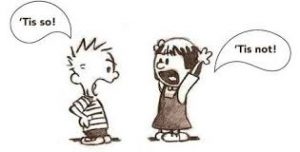 There have been several articles published recently about the usefulness and efficacy of assessment in higher education. I won’t join the debate, partly because so much is dependent on the system of assessment that the culture of the institution has established. Assessment by its very nature is not monolithic. I will however, share some thoughts on how to make assessment meaningful here at JCCC: in your program and in your classroom.
There have been several articles published recently about the usefulness and efficacy of assessment in higher education. I won’t join the debate, partly because so much is dependent on the system of assessment that the culture of the institution has established. Assessment by its very nature is not monolithic. I will however, share some thoughts on how to make assessment meaningful here at JCCC: in your program and in your classroom.
To make Assessment meaningful and not a matter of compliance, I recommend focusing on three things:
- Focus on the good it can provide students, rather than the work it generates.
I am not denying assessment can take additional time to implement and evaluate, but a good assessment can help identify places in the curriculum where students are struggling and can lead faculty to develop additional resources and teaching practices to support student learning. Additionally, a strong assessment can fully integrate into the curriculum plan of the course; it shouldn’t and doesn’t have to stand alone and separate.
- Focus on where students should be in their learning rather than on where the assessment initiatives fit in to your plans.
Often assessment results are poor because the timing of the assessment activity was ill-considered or because the cognitive requirements of the assessment didn’t match the curriculum. Introductory coursework rarely results in mastery in a discipline but can certainly help students define the language or building blocks of a discipline. Make sure your expectations reflect what is realistic for students to accomplish at this stage of their educational journey.
- Focus on what benefit you will receive by knowing more about your students.
At the end of the day, assessments that are focused on improving student learning provide faculty with data about their students and how well the curriculum is working in the classroom.
At JCCC we ask faculty to keep the focus on students and improving learning, and at the end of the day that is something we can all agree on.
